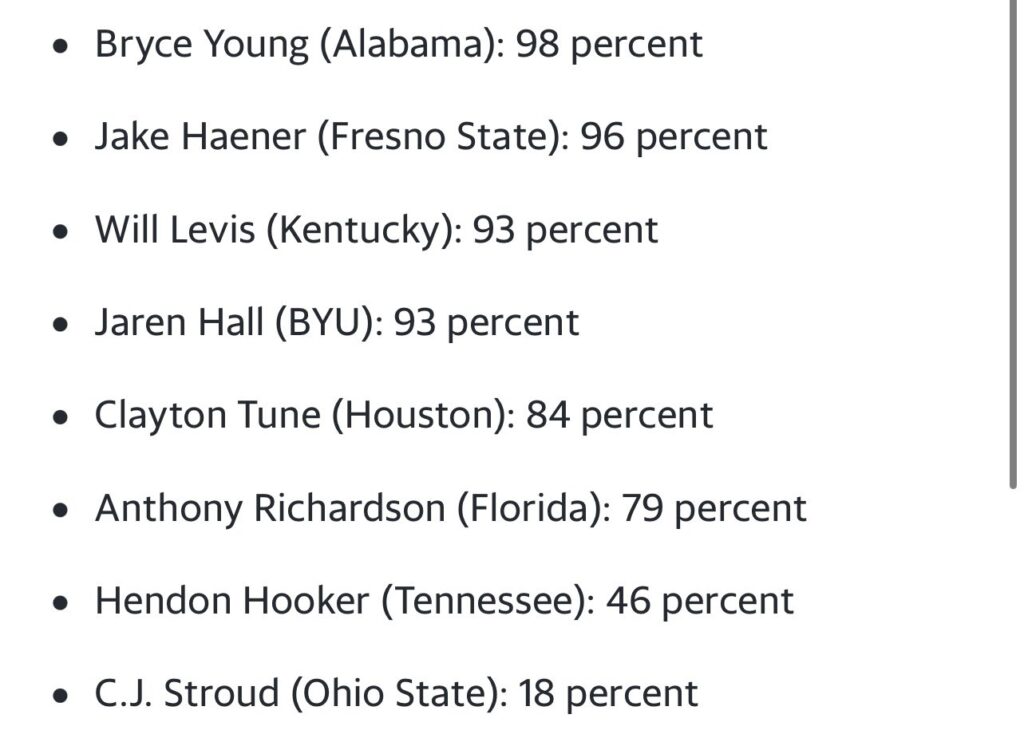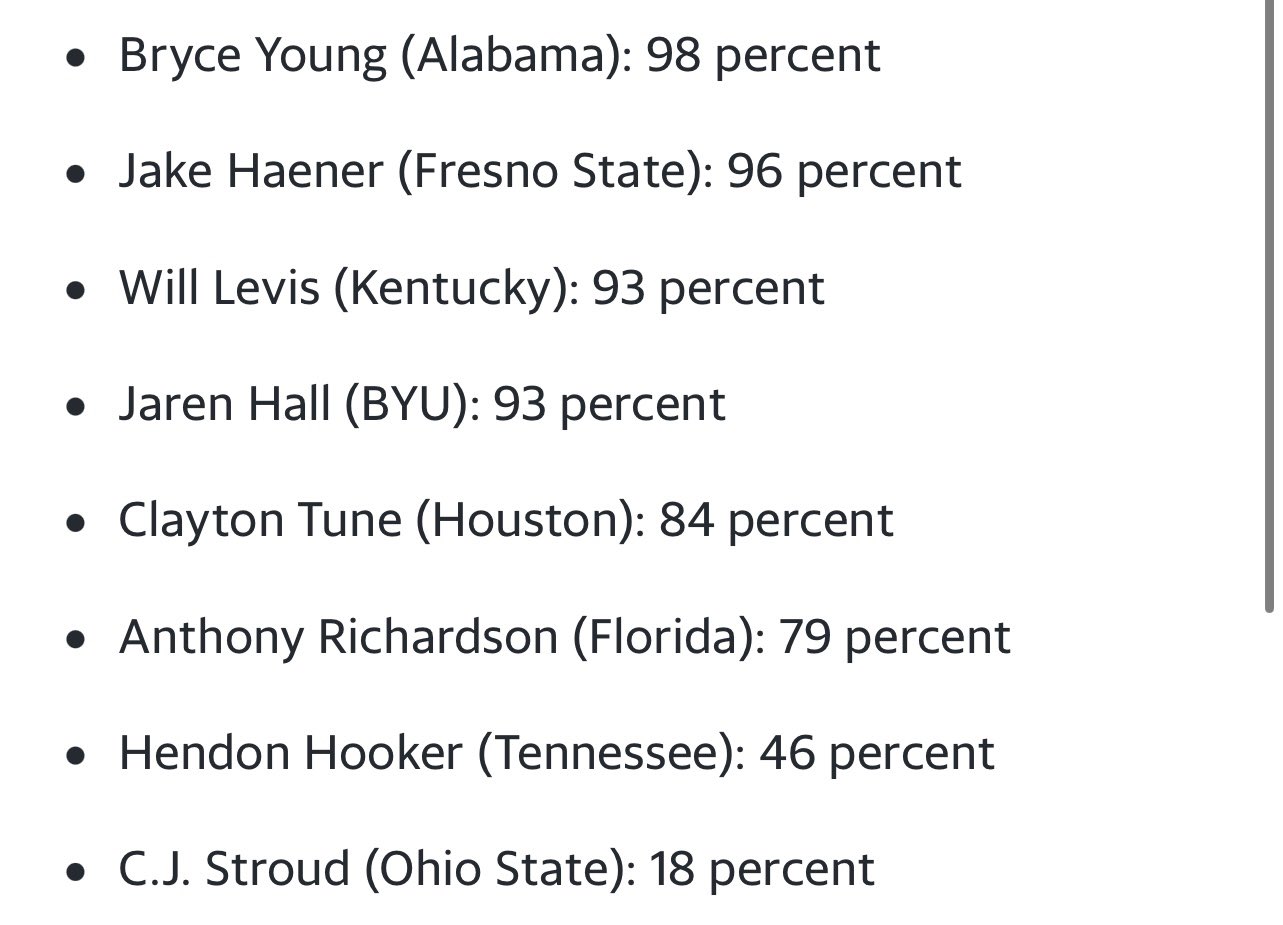
Decoding Quarterback Potential: The Wonderlic Scores Test and NFL Draft Success
The NFL Draft is a high-stakes crapshoot where teams invest millions of dollars in young athletes, hoping they’ll become franchise cornerstones. One tool that has historically been used, albeit controversially, to assess a quarterback’s cognitive abilities is the Wonderlic test. While its predictive power regarding on-field performance is debated, the quarterback test Wonderlic scores remain a point of fascination and discussion among fans and analysts alike.
What is the Wonderlic Test?
The Wonderlic Personnel Test is a 12-minute, 50-question assessment designed to measure cognitive ability. It’s a general aptitude test covering verbal, numerical, and spatial reasoning. In the context of the NFL, it aims to gauge how quickly a player can process information, learn complex playbooks, and make quick decisions under pressure. The average score is around 20, and scores above 30 are generally considered very high.
The Quarterback Conundrum: Wonderlic Scores and NFL Performance
For decades, NFL teams have used the Wonderlic test as one piece of the evaluation puzzle when scouting quarterbacks. The theory is that a higher score indicates a greater capacity to understand complex offensive schemes, adapt to changing situations, and make intelligent decisions in the heat of the moment. However, the correlation between quarterback test Wonderlic scores and on-field success is far from perfect. Many highly successful quarterbacks have scored relatively low on the Wonderlic, while some with high scores have failed to live up to expectations in the NFL.
The debate centers on whether the test truly measures the qualities needed to excel as a quarterback. Critics argue that it overemphasizes raw intelligence and neglects crucial factors such as leadership, accuracy, arm strength, mobility, and, perhaps most importantly, the ability to read defenses and make split-second decisions under immense pressure. These skills are arguably more critical than the ability to solve abstract reasoning problems in a timed test.
Notable Quarterback Wonderlic Scores
Here’s a look at the reported quarterback test Wonderlic scores of some notable NFL quarterbacks. It’s important to note that some scores are unconfirmed and based on reports from various sources. Also, a low or high score isn’t a definitive predictor of success or failure.
- High Scores:
- Ryan Fitzpatrick: Reportedly scored 48 (one of the highest known scores for an NFL player)
- Greg McElroy: Reportedly scored 43
- Alex Smith: Reportedly scored 40
- Mid-Range Scores:
- Tom Brady: Reportedly scored 33
- Aaron Rodgers: Reportedly scored 35
- Peyton Manning: Reportedly scored 28
- Lower Scores:
- Dan Marino: Reportedly scored 16
- Terry Bradshaw: Reportedly scored 16
- Jim Kelly: Reportedly scored 24
As you can see, the spectrum of quarterback test Wonderlic scores is quite broad. Some legendary quarterbacks, like Marino and Bradshaw, had relatively low scores, while others, like Fitzpatrick, had exceptionally high scores. This further fuels the debate about the test’s relevance.
The Argument Against Over-Reliance on Wonderlic Scores
Many NFL analysts and coaches now downplay the importance of the Wonderlic test. They argue that on-field performance, game film analysis, and personal interviews provide a more comprehensive and accurate assessment of a quarterback’s potential. The ability to process information in a classroom setting, as measured by the Wonderlic, doesn’t necessarily translate to the ability to process information under the pressure of an NFL defense. [See also: NFL Draft Quarterback Rankings]
Furthermore, the Wonderlic test has been criticized for its potential cultural bias. Some argue that the test questions may favor individuals from certain socioeconomic backgrounds or educational experiences, potentially disadvantaging otherwise talented players. This has led to calls for a more holistic and culturally sensitive approach to player evaluation.
The Future of Quarterback Evaluation: Beyond the Wonderlic
As the NFL continues to evolve, so too does the way teams evaluate quarterback prospects. The focus is shifting towards more sophisticated metrics that measure on-field performance, such as completion percentage under pressure, time to throw, and accuracy on deep passes. Teams are also placing greater emphasis on character assessments, leadership qualities, and the ability to build rapport with teammates. [See also: Analyzing Quarterback Throwing Mechanics]
While the quarterback test Wonderlic scores may still be considered by some teams, it’s unlikely to be the deciding factor in whether a quarterback is drafted or not. The modern NFL demands a more nuanced and comprehensive approach to player evaluation, one that takes into account a wide range of factors beyond raw intelligence. The emphasis is on identifying players who possess the mental toughness, leadership skills, and on-field instincts necessary to thrive in the league’s most demanding position. The importance of quarterback test Wonderlic scores is diminishing as teams realize that football intelligence is a different beast than book smarts. Many argue that the quarterback test Wonderlic scores only measure a certain type of intelligence, and not the type of football intelligence required to succeed. Understanding pre-snap reads, identifying blitz packages, and making quick decisions under pressure are far more important. The days of heavily weighing quarterback test Wonderlic scores are fading. Teams are now looking at film, conducting interviews, and analyzing on-field performance more closely. The debate continues on whether the quarterback test Wonderlic scores should be used at all. Some believe it offers a small piece of the puzzle, while others think it’s completely irrelevant. The fact remains that many successful quarterbacks have had low quarterback test Wonderlic scores, proving that intelligence alone isn’t enough. The NFL is a complex game that requires a unique blend of physical and mental abilities. The quarterback test Wonderlic scores only measure one aspect of that equation. Teams are constantly searching for the next great quarterback, and the evaluation process is constantly evolving. While the quarterback test Wonderlic scores may still play a minor role, the focus is now on finding players who possess the complete package of skills and attributes necessary to lead a team to victory. It’s also worth noting that the pressure to perform well on the quarterback test Wonderlic scores can be immense for these young athletes. The test results can significantly impact their draft stock and future earning potential. It is important to consider the psychological impact of the test on these individuals. The quarterback test Wonderlic scores are just one data point in a sea of information. Teams must be careful not to overemphasize their importance and instead focus on a more holistic evaluation process. Ultimately, the success of a quarterback depends on a multitude of factors, including talent, work ethic, coaching, and the support of their teammates. The quarterback test Wonderlic scores are simply a small piece of the puzzle. The enduring fascination with quarterback test Wonderlic scores highlights our desire to quantify success. However, the reality is that the qualities that make a great quarterback are often intangible and difficult to measure. The NFL is a game of inches, and the difference between success and failure can often come down to instinct, intuition, and the ability to make the right decision in the face of adversity. These are qualities that cannot be captured by a standardized test. Despite the criticisms, the quarterback test Wonderlic scores continue to be a topic of conversation during draft season. They provide a convenient narrative and a simple way to compare quarterback prospects. However, it is important to remember that the test results are just one piece of the puzzle and should not be used to make sweeping generalizations about a player’s potential. The real test comes on the field, where quarterbacks are judged by their ability to lead their teams to victory.
Conclusion
The quarterback test Wonderlic scores continue to be a subject of debate in the NFL. While the test may provide some insight into a player’s cognitive abilities, it’s crucial to remember that it’s just one piece of the puzzle. On-field performance, leadership qualities, and the ability to perform under pressure are ultimately more important factors in determining a quarterback’s success.
